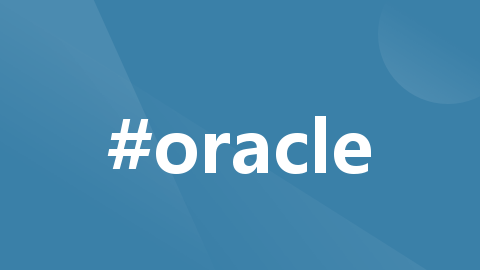Flutter学习之Scaffold布局控件介绍
简介Scaffold 实现了基本的 Material 布局。只要是在 Material 中定义了的单个界面显示的布局控件元素,都可以使用 Scaffold 来绘制。提供展示抽屉(drawers,比如:左边栏)、通知(snack bars) 以及 底部按钮(bottom sheets)。我们可以将 Scaffold 理解为一个布局的容器。可以在这个容器中绘制我们的用户界面。源码图示...
简介
Scaffold 实现了基本的 Material 布局。只要是在 Material 中定义了的单个界面显示的布局控件元素,都可以使用 Scaffold 来绘制。
提供展示抽屉(drawers,比如:左边栏)、通知(snack bars) 以及 底部按钮(bottom sheets)。
我们可以将 Scaffold 理解为一个布局的容器。可以在这个容器中绘制我们的用户界面。
源码图示

说明
Scaffold 主要的属性说明
-
appBar:显示在界面顶部的一个 AppBar
相关连接:https://flutterchina.club/catalog/samples/ -
body:当前界面所显示的主要内容
-
floatingActionButton: 在 Material 中定义的一个功能按钮。
-
persistentFooterButtons:固定在下方显示的按钮。https://material.google.com/components/buttons.html#buttons-persistent-footer-buttons
-
drawer:侧边栏控件
-
bottomNavigationBar:显示在底部的导航栏按钮栏。可以查看文档:Flutter学习之制作底部菜单导航
-
backgroundColor:背景颜色
-
resizeToAvoidBottomPadding: 控制界面内容 body
是否重新布局来避免底部被覆盖了,比如当键盘显示的时候,重新布局避免被键盘盖住内容。默认值为 true。
代码示例
class Scaffold extends StatefulWidget {
/// Creates a visual scaffold for material design widgets.
const Scaffold({
Key key,
this.appBar, //横向水平布局,通常显示在顶部(*)
this.body, // 内容(*)
this.floatingActionButton, //悬浮按钮,就是上图右下角按钮(*)
this.floatingActionButtonLocation, //悬浮按钮位置
//悬浮按钮在[floatingActionButtonLocation]出现/消失动画
this.floatingActionButtonAnimator,
//在底部呈现一组button,显示于[bottomNavigationBar]之上,[body]之下
this.persistentFooterButtons,
//一个垂直面板,显示于左侧,初始处于隐藏状态(*)
this.drawer,
this.endDrawer,
//出现于底部的一系列水平按钮(*)
this.bottomNavigationBar,
//底部持久化提示框
this.bottomSheet,
//内容背景颜色
this.backgroundColor,
//弃用,使用[resizeToAvoidBottomInset]
this.resizeToAvoidBottomPadding,
//重新计算布局空间大小
this.resizeToAvoidBottomInset,
//是否显示到底部,默认为true将显示到顶部状态栏
this.primary = true,
//
this.drawerDragStartBehavior = DragStartBehavior.down,
}) : assert(primary != null),
assert(drawerDragStartBehavior != null),
super(key: key);
Scaffold.of 使用说明
关于 Scaffold.of 函数的说明:https://docs.flutter.io/flutter/material/Scaffold/of.html
显示 snackbar 或者 bottom sheet 的时候,需要使用当前的 BuildContext 参数调用 Scaffold.of 函数来获取 ScaffoldState 对象,然后使用 ScaffoldState.showSnackBar 和 ScaffoldState.showBottomSheet 函数来显示。
来自官方源码上面的例子。使用 SnackBar 的写法。
@override
Widget build(BuildContext context) {
return new RaisedButton(
child: new Text('SHOW A SNACKBAR'),
onPressed: () {
Scaffold.of(context).showSnackBar(new SnackBar(
content: new Text('Hello!'),
));
},
);
}
当 Scaffold 实际上是在同一个构建函数中创建时,构建函数的 BuildContext 参数不能用于查找 Scaffold(因为它位于返回的小部件的“上方”)。 因为在源码中 使用的是 return new Scaffold(app:xxxx),在这种情况下面,通过在 Scaffold 中使用一个 Builder 来提供一个新的 BuildContext:
@override
Widget build(BuildContext context) {
return new Scaffold(
appBar: new AppBar(
title: new Text('Demo')
),
body: new Builder(
// Create an inner BuildContext so that the onPressed methods
// can refer to the Scaffold with Scaffold.of().
builder: (BuildContext context) {
return new Center(
child: new RaisedButton(
child: new Text('SHOW A SNACKBAR'),
onPressed: () {
Scaffold.of(context).showSnackBar(new SnackBar(
content: new Text('Hello!'),
));
},
),
);
},
),
);
}
另外呢,按照官方的说法,可以将我们的构建函数拆分到多个 Widgets中。分别引入新的 BuildContext 来获取 Scaffold.
更多推荐
 已为社区贡献4条内容
已为社区贡献4条内容









所有评论(0)